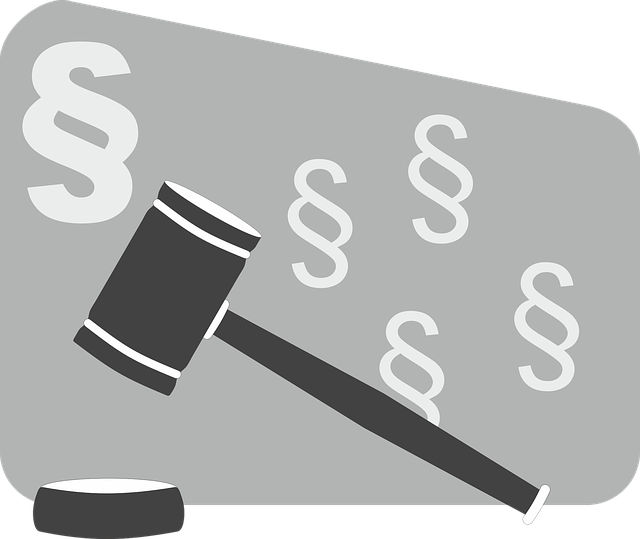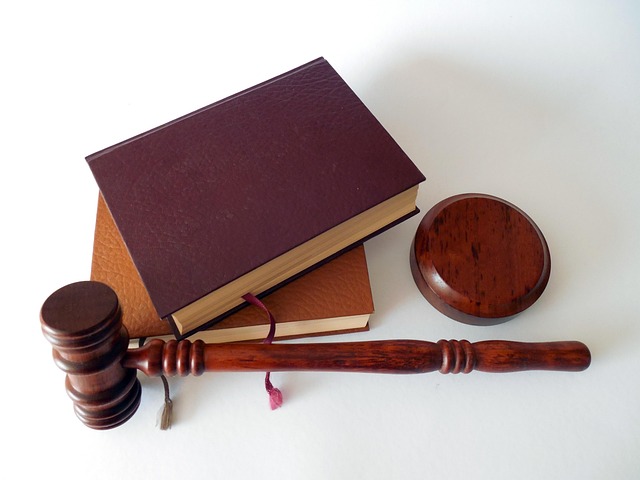Prosecutorial discretion significantly shapes criminal case outcomes by influencing charging decisions, plea negotiations, and case droppages. This power, based on evidence strength, potential sentences, public interest, and crime circumstances, can lead to aggressive pursuit with strong evidence or more lenient approaches with weaker evidence or extenuating factors. Effective legal representation becomes crucial to navigate this complex balance and ensure justice while protecting the rights of the accused, especially in high-stakes cases where the impact on individuals and corporations is severe.
Criminal law cases are complex, multifaceted, and heavily influenced by prosecutorial discretion—the power to choose which charges to file and how to pursue them. This article delves into the intricacies of criminal law cases, focusing on the role of prosecutorial discretion in case management and its significant impact on outcomes. We explore factors influencing prosecutorial decisions, ethical considerations, and challenges, providing an in-depth overview that highlights the critical balance between justice and discretion. Understanding these dynamics is crucial for navigating the complexities of criminal legal systems.
- Understanding Criminal Law Cases: An Overview
- The Role of Prosecutorial Discretion in Case Management
- Factors Influencing Prosecutorial Decisions
- Impact of Prosecutorial Discretion on Case Outcomes
- Ethical Considerations and Challenges in Prosecutorial Practices
Understanding Criminal Law Cases: An Overview

Criminal law cases involve the prosecution and defence of individuals accused of crimes. Understanding these cases requires a grasp of the complex interplay between various legal principles, evidence rules, and procedural norms. At the heart of it all lies the prosecutor’s discretion in deciding whether to charge, how to charge, and how aggressively to pursue a case. This discretionary power significantly impacts case outcomes, as it influences not only the initiation but also the intensity of the prosecution’s efforts.
The impact of prosecutorial discretion is particularly notable in high-stakes cases, where the consequences for both corporate and individual clients can be severe. An unprecedented track record of successful prosecutions or a more measured approach based on mitigating circumstances can dramatically alter the trajectory of a case. Thus, clients navigate these legal landscapes with varying degrees of uncertainty, making effective legal representation crucial to ensure justice is served while protecting the rights of the accused.
The Role of Prosecutorial Discretion in Case Management

The role of prosecutorial discretion is a pivotal aspect of case management in Criminal Law. Prosecutors hold significant power in determining how to handle criminal cases, from charging decisions to plea negotiations. This discretion can greatly impact the outcome of a case, potentially leading to the complete dismissal of all charges or an alternative resolution. The exercise of prosecutorial discretion is not arbitrary; it involves a careful consideration of various factors, including the strength of evidence, potential sentence, and public interest.
This discretionary power allows prosecutors to tailor their approach for both corporate and individual clients, striking a balance between seeking justice and promoting fairness. In cases where the evidence is compelling, prosecutors may choose to pursue charges aggressively. Conversely, in instances with weaker evidence or extenuating circumstances, prosecutorial discretion might lead to a more lenient approach, offering alternative solutions that align with the best interests of all parties involved, ultimately shaping the trajectory of case outcomes.
Factors Influencing Prosecutorial Decisions

Prosecutorial discretion plays a pivotal role in shaping case outcomes within criminal law. Several factors influence the decisions made by prosecutors when determining whether to charge, negotiate plea deals, or drop charges. These considerations include the strength of evidence, potential sentence severity, public interest, and the specific circumstances surrounding the crime. For his clients, understanding these factors is crucial as it can significantly impact their legal journey.
Across the country, experienced legal professionals often work diligently to advocate for their clients’ rights and interests. By presenting compelling arguments, gathering substantial evidence, and negotiating strategically, they aim to achieve extraordinary results. This involves navigating complex legal landscapes and leveraging the prosecutorial discretion impact on case outcomes to ensure the best possible resolution for their clients.
Impact of Prosecutorial Discretion on Case Outcomes

The concept of prosecutorial discretion significantly influences the trajectory and outcomes of criminal law cases. This power, vested in prosecutors, allows them to make critical decisions regarding charges, sentencing recommendations, and even the pursuit of a case itself. The impact of this discretion is profound, as it can determine whether an accused individual faces trial or walks free, shaping the entire legal process. When exercised judiciously, prosecutorial discretion ensures fairness by considering mitigating circumstances and promoting restorative justice.
However, the potential for bias or abuse exists. High-stakes cases, especially those involving unprecedented charges or complex crimes, may be subject to varying interpretations of the law. An prosecutor’s personal beliefs or external pressures could influence their decisions, affecting the rights of the accused. In jury trials, where public perception plays a role, the discretion can further complicate matters, impacting the ability to achieve a just and impartial verdict.
Ethical Considerations and Challenges in Prosecutorial Practices

The role of prosecutors is multifaceted, requiring a delicate balance between achieving justice and upholding ethical standards. One significant aspect that often comes under scrutiny is prosecutorial discretion—the power to decide which cases to pursue and how to charge suspects. This discretionary authority can significantly impact case outcomes, with the potential to either ensure fairness or lead to perceived injustices. The challenge lies in applying consistent criteria without disregarding unique circumstances, especially when dealing with corporate and individual clients alike.
Ethical considerations demand that prosecutors avoid using their discretion to selectively target certain individuals or entities, ensuring instead that decisions are based on evidence and legal merits. Navigating the tension between protecting societal interests and respecting individual rights is a delicate task. Moreover, the desire to achieve extraordinary results in high-profile cases must be balanced against the risk of compromising integrity, which could undermine public trust.
Criminal law cases are complex, with numerous factors influencing their outcomes. The article has explored how prosecutorial discretion plays a pivotal role in case management and ultimately shapes these outcomes. By examining the various ethical considerations and challenges within prosecutorial practices, we gain insights into the delicate balance between justice and discretion. Understanding the impact of prosecutorial discretion on case outcomes is essential for navigating the complexities of criminal law, ensuring fairness, and upholding the integrity of the legal system.






